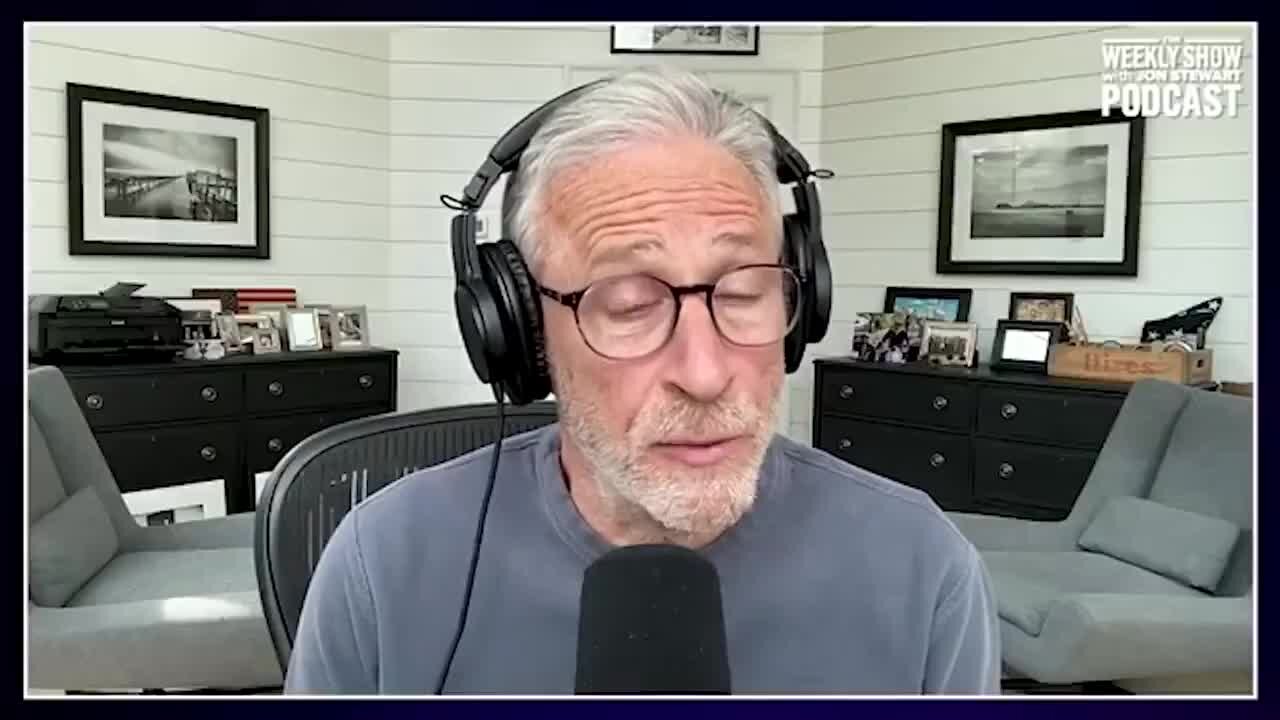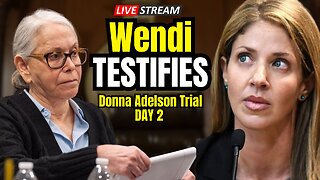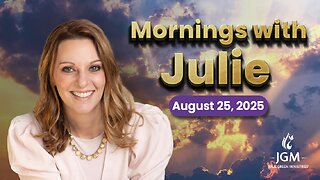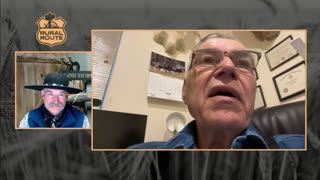Premium Only Content

Ezra Klein Stuns Jon Stewart by Detailing the Failures of Biden’s ‘Build Back Better’
STEWART: “They wanted — they didn’t want to just build it, Ezra, they wanted it back better.”
KLEIN: “Wow! Man, that’s a — there’s something about throwing me back to that moment that hurts, at this moment, right? Like the optimism, it was a simpler time.”
STEWART: “It was a simpler time. But you make the point in the book, which I think is really interesting, that that moment of optimism actually crystallized in some ways, the failure.”
KLEIN: “Yes.”
STEWART: “And you make it very stark in terms of, you know, for instance, the chargers, you know, which I think is a great example.”
KLEIN: “Yeah. So, right, so liberals pass $7.5 billion for a nationwide network of electric vehicle chargers. We also get $42 billion, and this is a big thing they tout a lot, to do rural broadband. There’s a lot of parts of this country that are not hooked up to broadband. And in both cases, and these were passed early in the administration, particularly the rural broadband money, by the end of the administration, by the election, by the time I’m fact-checking the book, they just have not happened. And you look into why — and we did look into why — and what you get are these incredibly baroque internal processes. I’ll focus on rural broadband for a minute here, because that one was a good idea.”
STEWART: “Still a good idea.”
KLEIN: “And they liked it. Like that was the one they went around when they talked about the infrastructure bill, they were like, roads and rural broadband, right? And if you look into what happened, they created, not in the bill — but this is really important. We have this whole little schoolhouse rock song about like how a bill becomes a law, and it’s like sitting on the steps of Congress.”
STEWART: “I’m not going to ask you to sing it, Ezra.”
KLEIN: “I’m so — I’ve been practicing. (Laughter) I have been practicing. We don’t have the song about how the law becomes reality, how the law becomes a series of implementation rules —”
STEWART: “Right.”
KLEIN: “— then a notice of funding opportunity. Then there’s a comment period. Then there’s a challenge period for the comments. (Laughter) Then there’s a series of court cases.”
STEWART: “Right.”
KLEIN: “And so for rural broadband, for instance, what you end up having is a 14 stage process. Like there’s a period where the Commerce Department needs to draw up a map of which parts of the country don’t have the right amount of broadband. And then there’s a challenge period on the map and da, da, da, da, and da, da, da, da. And 56 states and jurisdictions try to apply for this money. And again, this passes at the end of 2021. They have time. By the end of 2024, three have gotten to the end of the process. They were trying.”
STEWART: “Three, three of these 56.”
KLEIN: “Yes.”
STEWART: “End of the process, meaning they’ve actioned it, they’ve built it, or they’ve — now they’ve got the —”
KLEIN: “No, no, no, no, of course not.”
STEWART: “Oh!”
KLEIN: “I didn’t mean they’ve built it, Jon. Sorry, I was so confused.”
STEWART: “Oh, dear God.”
KLEIN: “They just got to the point where in theory they could get the money to build it.”
STEWART: “They had been approved for the money.”
KLEIN: “Yes. Yes, basically.”
-
 5:19
5:19
Grabien
15 hours agoCNN Panel Melts Down When Batya Ungar-Sargon Points Out the DIA Head Fired by Hegseth Was ‘Objectively Terrible at His Job’
59 -
 LIVE
LIVE
Surviving The Survivor: #BestGuests in True Crime
12 minutes agoLIVE Court: Wendi Adelson Testifies Against Mom, Donna Adelson, in Dan Markel's Murder Trial
213 watching -
 LIVE
LIVE
JuicyJohns
43 minutes ago🟢#1 REBIRTH PLAYER 10.2+ KD🟢
194 watching -
 1:14:57
1:14:57
JULIE GREEN MINISTRIES
2 hours agoRUSSIA IS ABOUT TO RELEASE SOMETHING THAT WILL CRUSH THE ESTABLISHMENT
33.8K113 -
 LIVE
LIVE
GritsGG
43 minutes agoWin Streaking! Coloring Hair @11AM PST~ Most Wins 3435+ 🧠
42 watching -
 LIVE
LIVE
Welcome to the Rebellion Podcast
19 hours agoMonday Funday - WTTR Podcast Live 8/25
319 watching -
 1:21:24
1:21:24
Game On!
15 hours ago $0.02 earnedTom Brady And The Las Vegas Raiders ARE BACK! 2025 NFL Preview!
23.9K1 -
 LIVE
LIVE
The Bubba Army
2 days agoShould RaJa Jackson Be Arrested? - Bubba the Love Sponge® Show | 8/25/25
2,052 watching -
 LIVE
LIVE
FyrBorne
14 hours ago🔴Warzone M&K Sniping: Builds So Strong They Think I'm Hacking
285 watching -

BEK TV
3 days agoTrent Loos in the Morning - 8/25/2025
19.9K